The Congress-led Maharashtra government has virtually demanded Pota (Prevention of Terrorism Act) in a new bottle.
MUMBAI: The Congress-led Maharashtra government has virtually demanded Pota (Prevention of Terrorism Act) in a new bottle. Even as Prime Minister Manmohan Singh has been crying hoarse that the existing laws are potent enough to tackle terrorism, state chief minister Vilasrao Deshmukh recently urged the Centre to strengthen anti-terror laws.
At a meeting with union home minister Shivraj Patil two days ago in Delhi, Deshmukh suggested amendments to existing laws to make them more stringent. Some of these suggestions are nothing short of Pota, which the Congress itself had vehemently opposed and which was termed “draconian” by many liberals and human rights activists.
Deshmukh made a Powerpoint presentation suggesting the Centre should consider the provision of at least 45 days police custody on the trot for a suspect in terror-related crimes. He wanted the time given to police to file chargesheets to be extended to 180 days instead of the present 90 days. He also sought special courts for prosecution. All the suggestions for amendments have a ring of Pota to them.
Ujjwal Nikam, best known as the special public prosecutor who saw through the successful convictions in the 1993 serial blasts case, told DNA, “All provisions recommended for amendments were part of Pota. To effectively combat terrorism, we definitely require stringent laws, especially those which can provide ample time to the police to conduct thorough interrogation and establish external and internal links on terror crime. I don't rule out misuse of Pota by investigating agencies.”
State home minister RR Patil told DNA, “We will have to make our existing laws more stringent to tackle terrorism in the state. We also need a central agency for better coordination.”
“Archaic British laws like the Indian Penal Code and the Criminal Procedure Act which were aimed at tackling crime cannot be effective in the current situation,” said an official in the state home ministry.
According to Patil, terror-related crime cases do not stand in a court of law, often frustrating the hard work of the police. “We will have to plug loopholes in the laws,” he said.
The home ministry believes that the Maharashtra-initiated MCOCA, 1999, may have become the model for other states but it was primarily constituted to deal with organised crime in Mumbai, specifically underworld activities.
Meanwhile, the state government is jittery about security along its 720-km coastal stretch and at public hospitals. Deshmukh has called for focused co-ordination from state and central agencies to ensure effective security measures.
Commercial and tourism activities along the coast have increased tremendously in the last few years and Navy and Army officials have expressed concern about inadequate monitoring.
A meeting held at Mantralaya on Thursday to review the law and order situation was headed by Deshmukh and attended by key officials from the police, bureaucracy, Navy, Army, BEST and Railways. An official from the home department said, “Given the background of the 1993 serial bomb blasts where the coastal area played a big role, it has become significant to beef up security along the coasts.”
Officials of the medical education department have been asked to submit a dedicated security plan for state-owned hospitals in Mumbai -- JJ and St George. “For the first time, hospitals were targeted by terrorists in Ahmedabad. A security lapse at public hospitals in Mumbai would pose a serious problem. Vehicular traffic should be restricted in these hospitals,” Deshmukh is said to have told officials.
“JJ has 22 gates and houses staff quarters, a medical college and encroached hutments and witnesses thousands of visitors daily. Security in such hospitals is a challenge before administration,” said Bhushan Gagrani, secretary in the medical education department.
Pota revisited?
Provision of police custody of 45 days in terror-related crimes
Provision for filing chargesheet within 180 days instead of 90 days
Provision for recording of confession by designated police officer to be confirmed before judicial magistrate
Special courts for prosecution
Strong Point of Pota
It allowed detention of a suspect for 180 days without the filing of charges in court. The law enforcement agencies could withhold the identities of witnesses. They could treat a confession made to the police as an admission of guilt. Under present law, a person can deny such confessions in court, but not under Pota.
![submenu-img]() Big update on Pakistan's first-ever Moon mission and it has this China connection...
Big update on Pakistan's first-ever Moon mission and it has this China connection...![submenu-img]() 2024 Maruti Suzuki Swift officially teased ahead of launch, bookings open at price of Rs…
2024 Maruti Suzuki Swift officially teased ahead of launch, bookings open at price of Rs…![submenu-img]() 'Kyun bhai kyun?': Sheezan Khan slams actors in Sanjay Leela Bhansali's Heeramandi, says 'nobody could...'
'Kyun bhai kyun?': Sheezan Khan slams actors in Sanjay Leela Bhansali's Heeramandi, says 'nobody could...'![submenu-img]() Meet Jai Anmol, his father had net worth of over Rs 183000 crore, he is Mukesh Ambani’s…
Meet Jai Anmol, his father had net worth of over Rs 183000 crore, he is Mukesh Ambani’s…![submenu-img]() Shooting victim in California not gangster Goldy Brar, accused of Sidhu Moosewala’s murder, confirm US police
Shooting victim in California not gangster Goldy Brar, accused of Sidhu Moosewala’s murder, confirm US police![submenu-img]() DNA Verified: Is CAA an anti-Muslim law? Centre terms news report as 'misleading'
DNA Verified: Is CAA an anti-Muslim law? Centre terms news report as 'misleading'![submenu-img]() DNA Verified: Lok Sabha Elections 2024 to be held on April 19? Know truth behind viral message
DNA Verified: Lok Sabha Elections 2024 to be held on April 19? Know truth behind viral message![submenu-img]() DNA Verified: Modi govt giving students free laptops under 'One Student One Laptop' scheme? Know truth here
DNA Verified: Modi govt giving students free laptops under 'One Student One Laptop' scheme? Know truth here![submenu-img]() DNA Verified: Shah Rukh Khan denies reports of his role in release of India's naval officers from Qatar
DNA Verified: Shah Rukh Khan denies reports of his role in release of India's naval officers from Qatar![submenu-img]() DNA Verified: Is govt providing Rs 1.6 lakh benefit to girls under PM Ladli Laxmi Yojana? Know truth
DNA Verified: Is govt providing Rs 1.6 lakh benefit to girls under PM Ladli Laxmi Yojana? Know truth![submenu-img]() Remember Heyy Babyy's cute 'Angel' Juanna Sanghvi? 20 year-old looks unrecognisable now, fans say 'her comeback will...'
Remember Heyy Babyy's cute 'Angel' Juanna Sanghvi? 20 year-old looks unrecognisable now, fans say 'her comeback will...'![submenu-img]() In pics: Arti Singh stuns in red lehenga as she ties the knot with beau Dipak Chauhan in dreamy wedding
In pics: Arti Singh stuns in red lehenga as she ties the knot with beau Dipak Chauhan in dreamy wedding![submenu-img]() Actors who died due to cosmetic surgeries
Actors who died due to cosmetic surgeries![submenu-img]() See inside pics: Malayalam star Aparna Das' dreamy wedding with Manjummel Boys actor Deepak Parambol
See inside pics: Malayalam star Aparna Das' dreamy wedding with Manjummel Boys actor Deepak Parambol ![submenu-img]() In pics: Salman Khan, Alia Bhatt, Rekha, Neetu Kapoor attend grand premiere of Sanjay Leela Bhansali's Heeramandi
In pics: Salman Khan, Alia Bhatt, Rekha, Neetu Kapoor attend grand premiere of Sanjay Leela Bhansali's Heeramandi![submenu-img]() DNA Explainer: Why Harvey Weinstein's rape conviction was overturned, will beleaguered Hollywood mogul get out of jail?
DNA Explainer: Why Harvey Weinstein's rape conviction was overturned, will beleaguered Hollywood mogul get out of jail?![submenu-img]() What is inheritance tax?
What is inheritance tax?![submenu-img]() DNA Explainer: What is cloud seeding which is blamed for wreaking havoc in Dubai?
DNA Explainer: What is cloud seeding which is blamed for wreaking havoc in Dubai?![submenu-img]() DNA Explainer: What is Israel's Arrow-3 defence system used to intercept Iran's missile attack?
DNA Explainer: What is Israel's Arrow-3 defence system used to intercept Iran's missile attack?![submenu-img]() DNA Explainer: How Iranian projectiles failed to breach iron-clad Israeli air defence
DNA Explainer: How Iranian projectiles failed to breach iron-clad Israeli air defence![submenu-img]() 'Kyun bhai kyun?': Sheezan Khan slams actors in Sanjay Leela Bhansali's Heeramandi, says 'nobody could...'
'Kyun bhai kyun?': Sheezan Khan slams actors in Sanjay Leela Bhansali's Heeramandi, says 'nobody could...'![submenu-img]() Meet actress who once competed with Aishwarya Rai on her mother's insistence, became single mother at 24, she is now..
Meet actress who once competed with Aishwarya Rai on her mother's insistence, became single mother at 24, she is now..![submenu-img]() Makarand Deshpande says his scenes were cut in SS Rajamouli’s RRR: ‘It became difficult for…’
Makarand Deshpande says his scenes were cut in SS Rajamouli’s RRR: ‘It became difficult for…’![submenu-img]() Meet 70s' most daring actress, who created controversy with nude scenes, was rumoured to be dating Ratan Tata, is now...
Meet 70s' most daring actress, who created controversy with nude scenes, was rumoured to be dating Ratan Tata, is now...![submenu-img]() Meet superstar’s sister, who debuted at 57, worked with SRK, Akshay, Ajay Devgn; her films earned over Rs 1600 crore
Meet superstar’s sister, who debuted at 57, worked with SRK, Akshay, Ajay Devgn; her films earned over Rs 1600 crore![submenu-img]() IPL 2024: Spinners dominate as Punjab Kings beat Chennai Super Kings by 7 wickets
IPL 2024: Spinners dominate as Punjab Kings beat Chennai Super Kings by 7 wickets![submenu-img]() Australia T20 World Cup 2024 squad: Mitchell Marsh named captain, Steve Smith misses out, check full list here
Australia T20 World Cup 2024 squad: Mitchell Marsh named captain, Steve Smith misses out, check full list here![submenu-img]() SRH vs RR, IPL 2024: Predicted playing XI, live streaming details, weather and pitch report
SRH vs RR, IPL 2024: Predicted playing XI, live streaming details, weather and pitch report![submenu-img]() SRH vs RR IPL 2024 Dream11 prediction: Fantasy cricket tips for Sunrisers Hyderabad vs Rajasthan Royals
SRH vs RR IPL 2024 Dream11 prediction: Fantasy cricket tips for Sunrisers Hyderabad vs Rajasthan Royals ![submenu-img]() IPL 2024: Marcus Stoinis, Mohsin Khan power Lucknow Super Giants to 4-wicket win over Mumbai Indians
IPL 2024: Marcus Stoinis, Mohsin Khan power Lucknow Super Giants to 4-wicket win over Mumbai Indians![submenu-img]() Viral video: Man's 'peek-a-boo' moment with tiger sends shockwaves online, watch
Viral video: Man's 'peek-a-boo' moment with tiger sends shockwaves online, watch![submenu-img]() Viral video: Desi woman's sizzling dance to Jacqueline Fernandez’s ‘Yimmy Yimmy’ burns internet, watch
Viral video: Desi woman's sizzling dance to Jacqueline Fernandez’s ‘Yimmy Yimmy’ burns internet, watch![submenu-img]() Viral video: Men turn car into mobile swimming pool, internet reacts
Viral video: Men turn car into mobile swimming pool, internet reacts![submenu-img]() Meet Youtuber Dhruv Rathee's wife Julie, know viral claims about her and how did the two meet
Meet Youtuber Dhruv Rathee's wife Julie, know viral claims about her and how did the two meet![submenu-img]() Viral video of baby gorilla throwing tantrum in front of mother will cure your midweek blues, watch
Viral video of baby gorilla throwing tantrum in front of mother will cure your midweek blues, watch
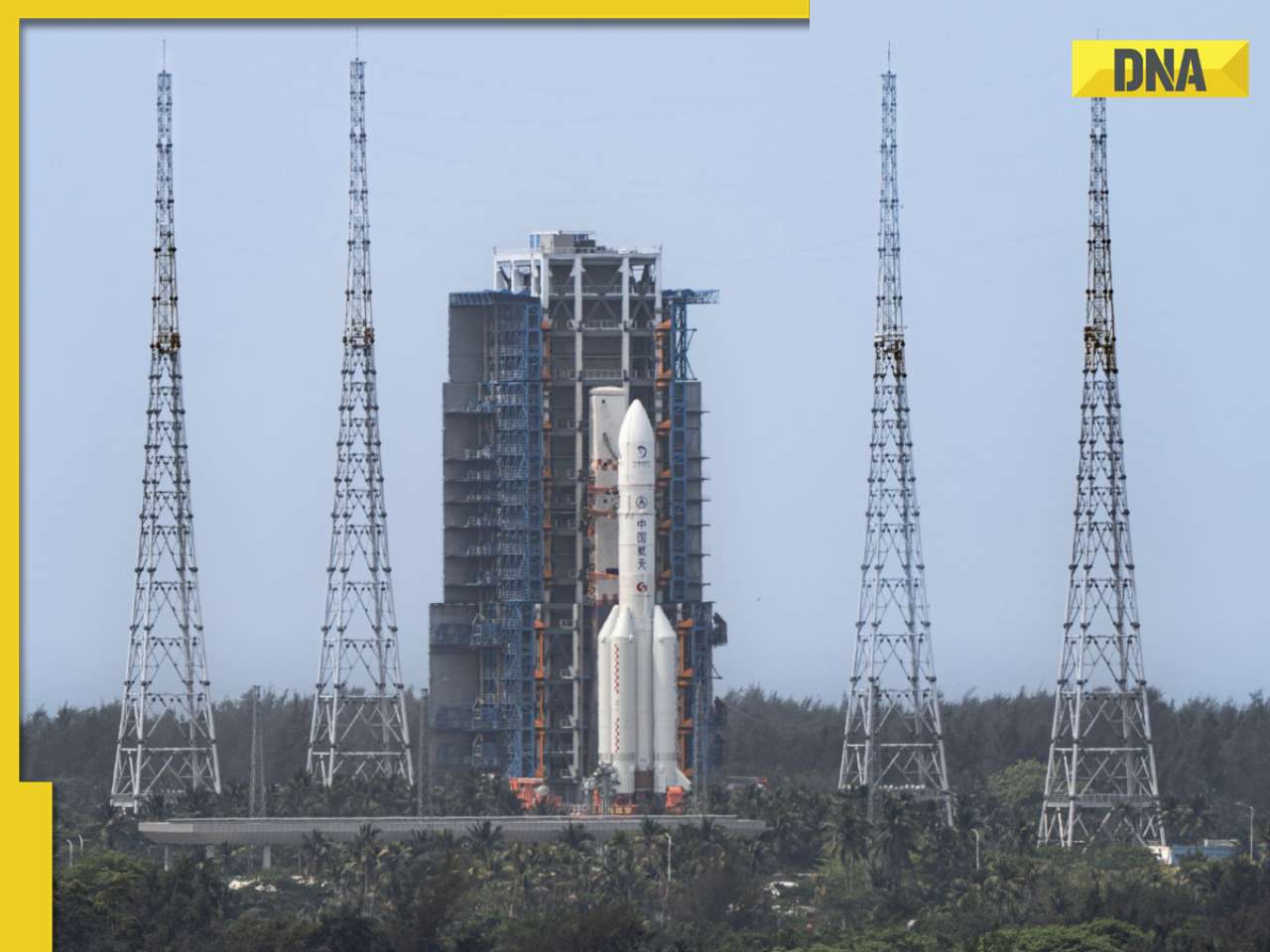


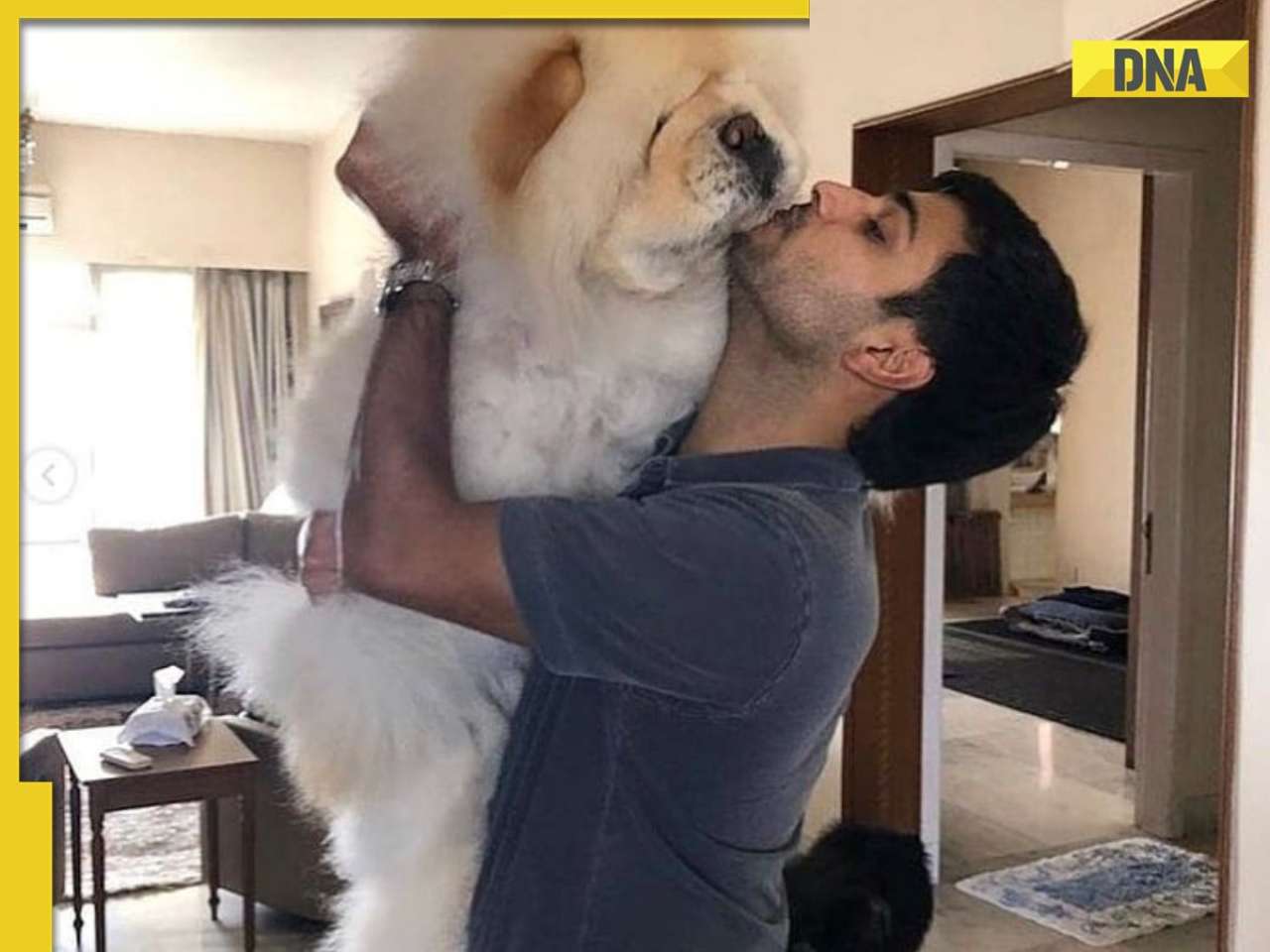
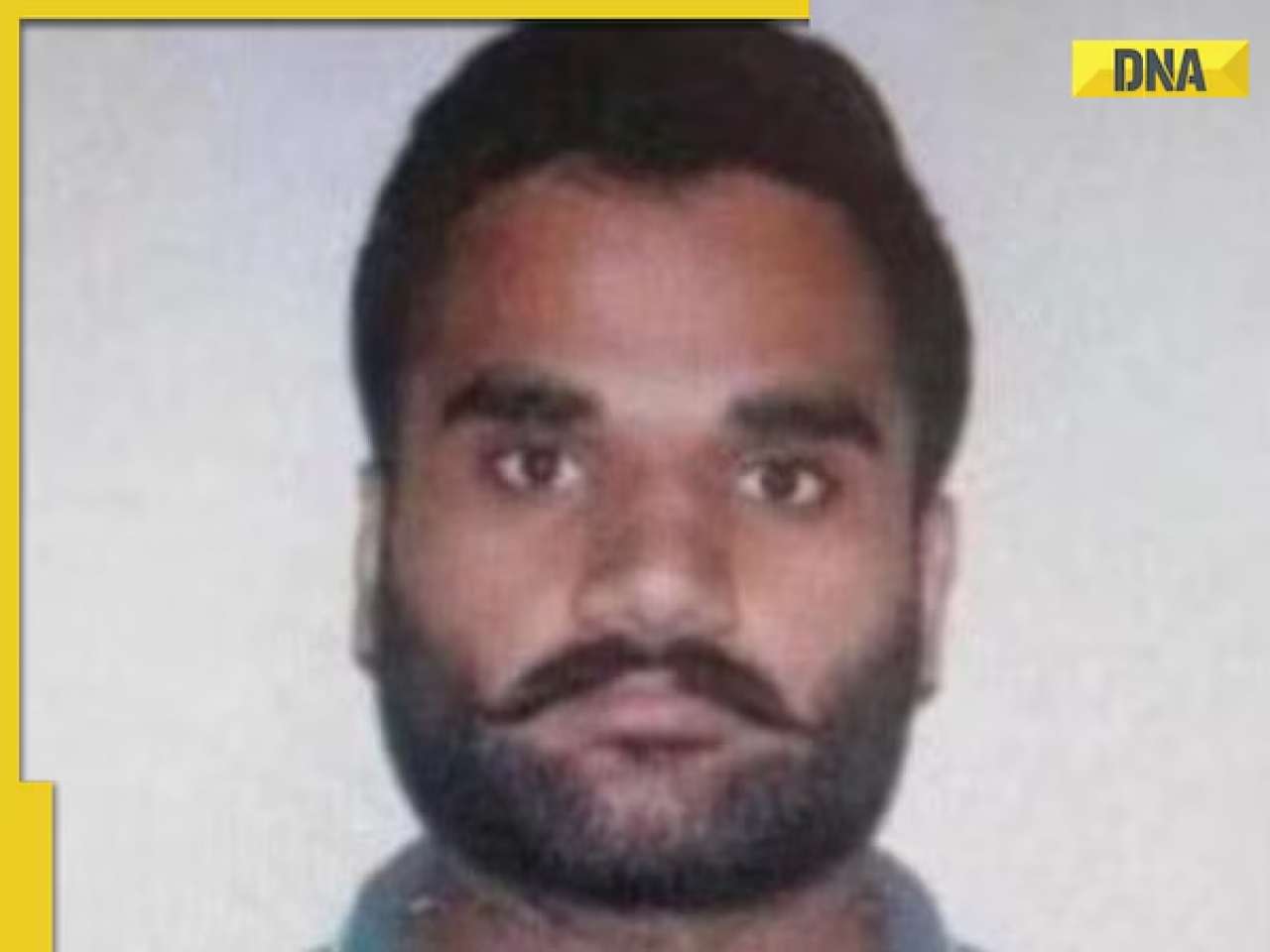




















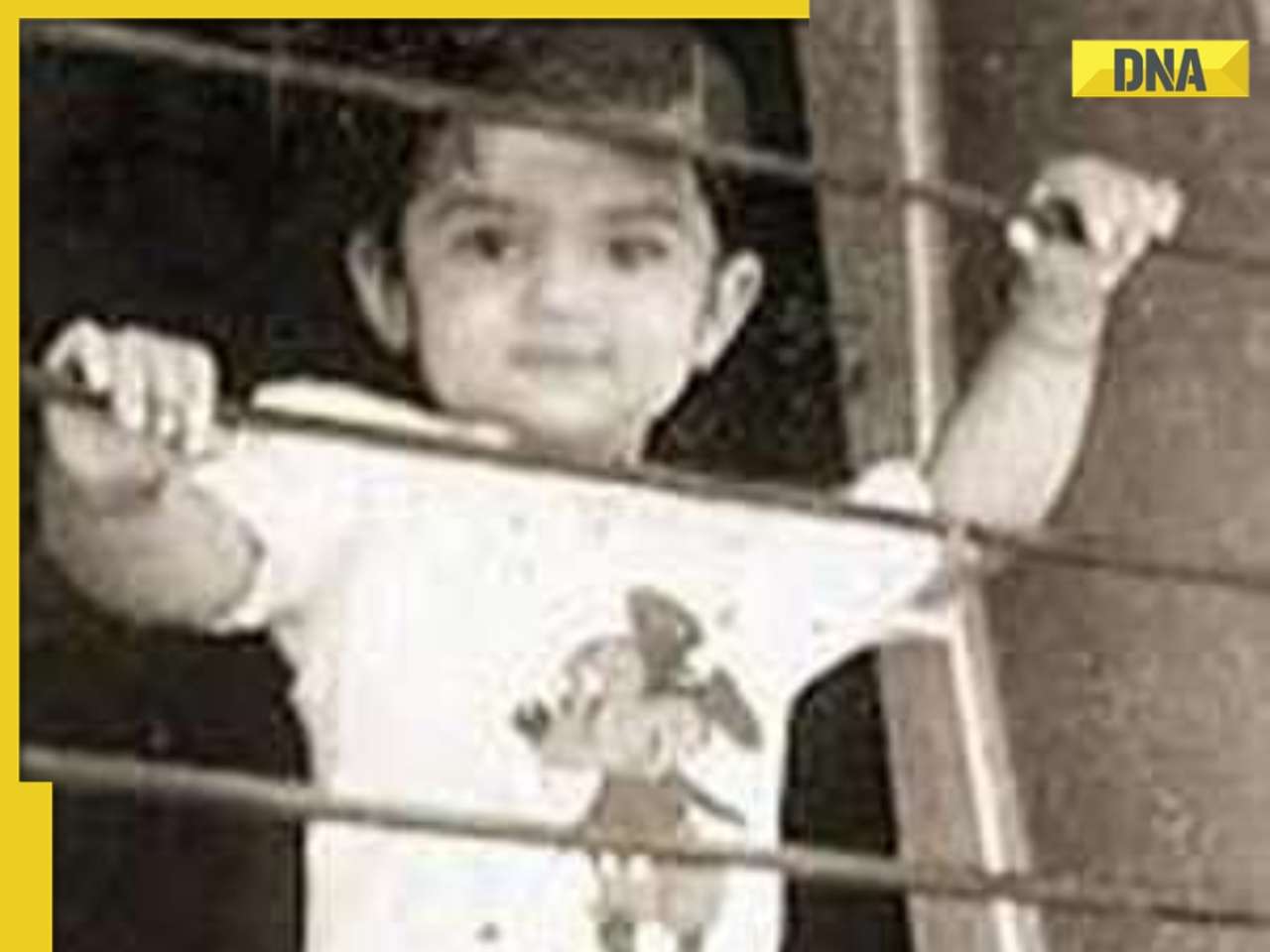
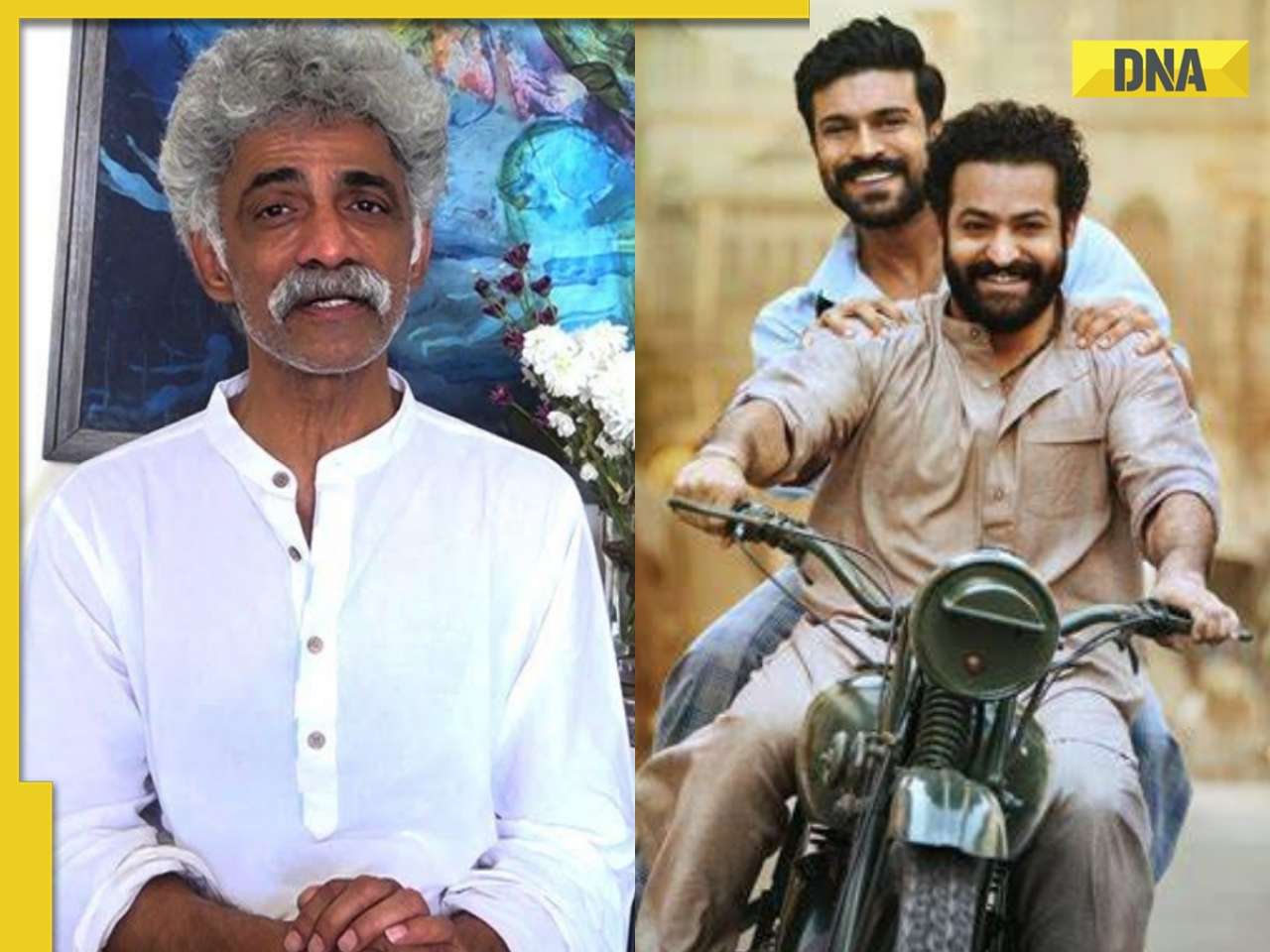
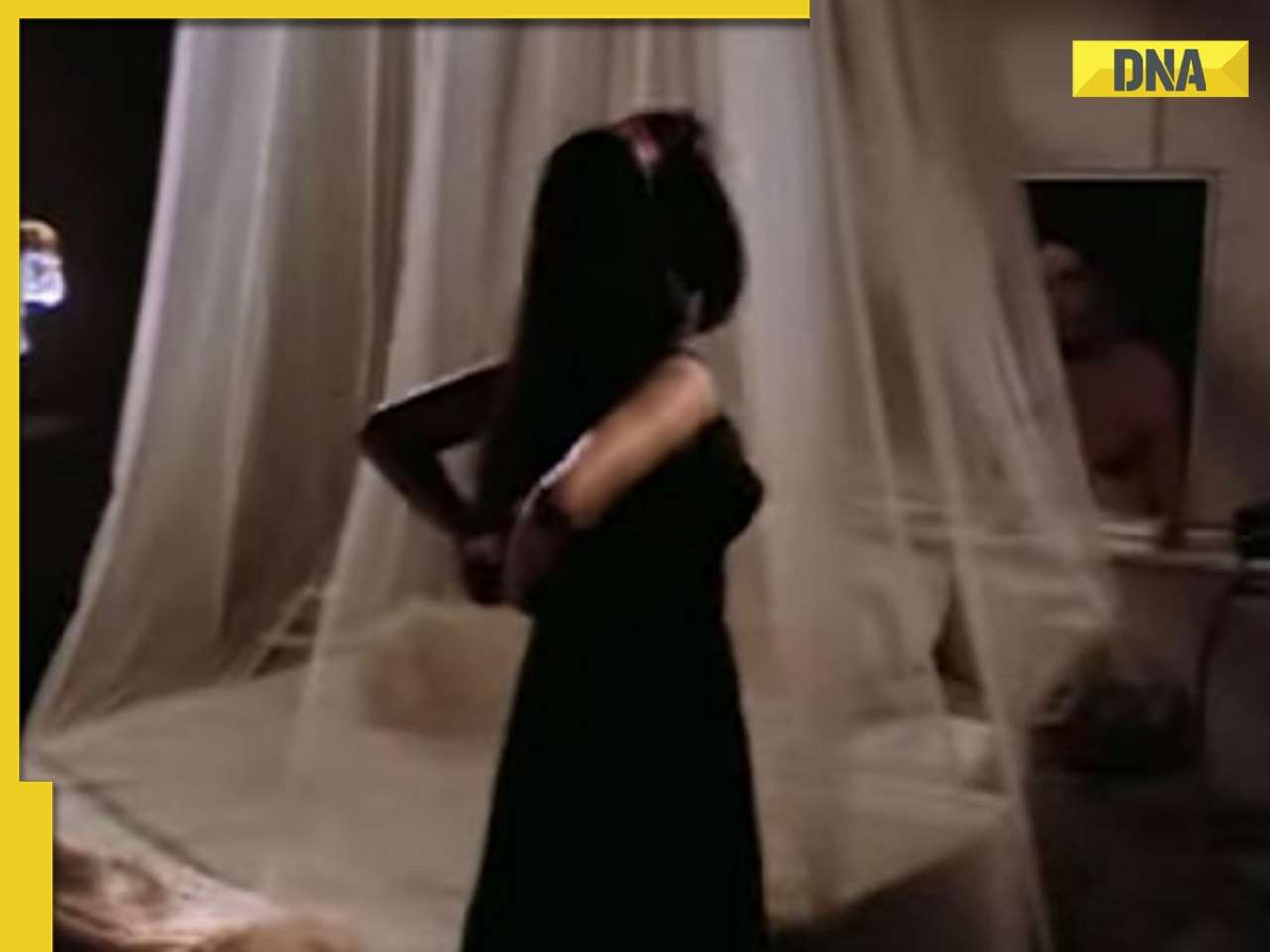
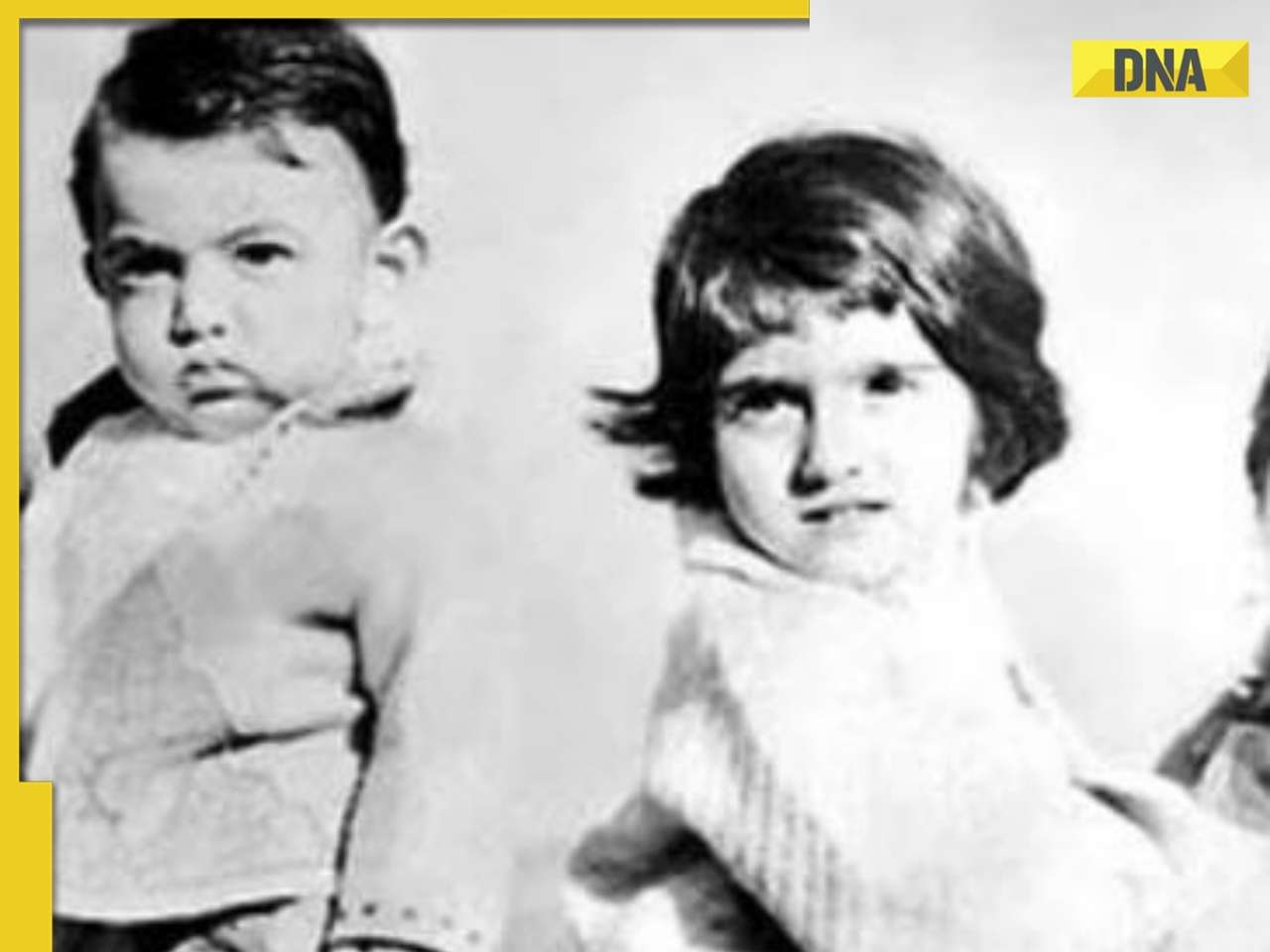
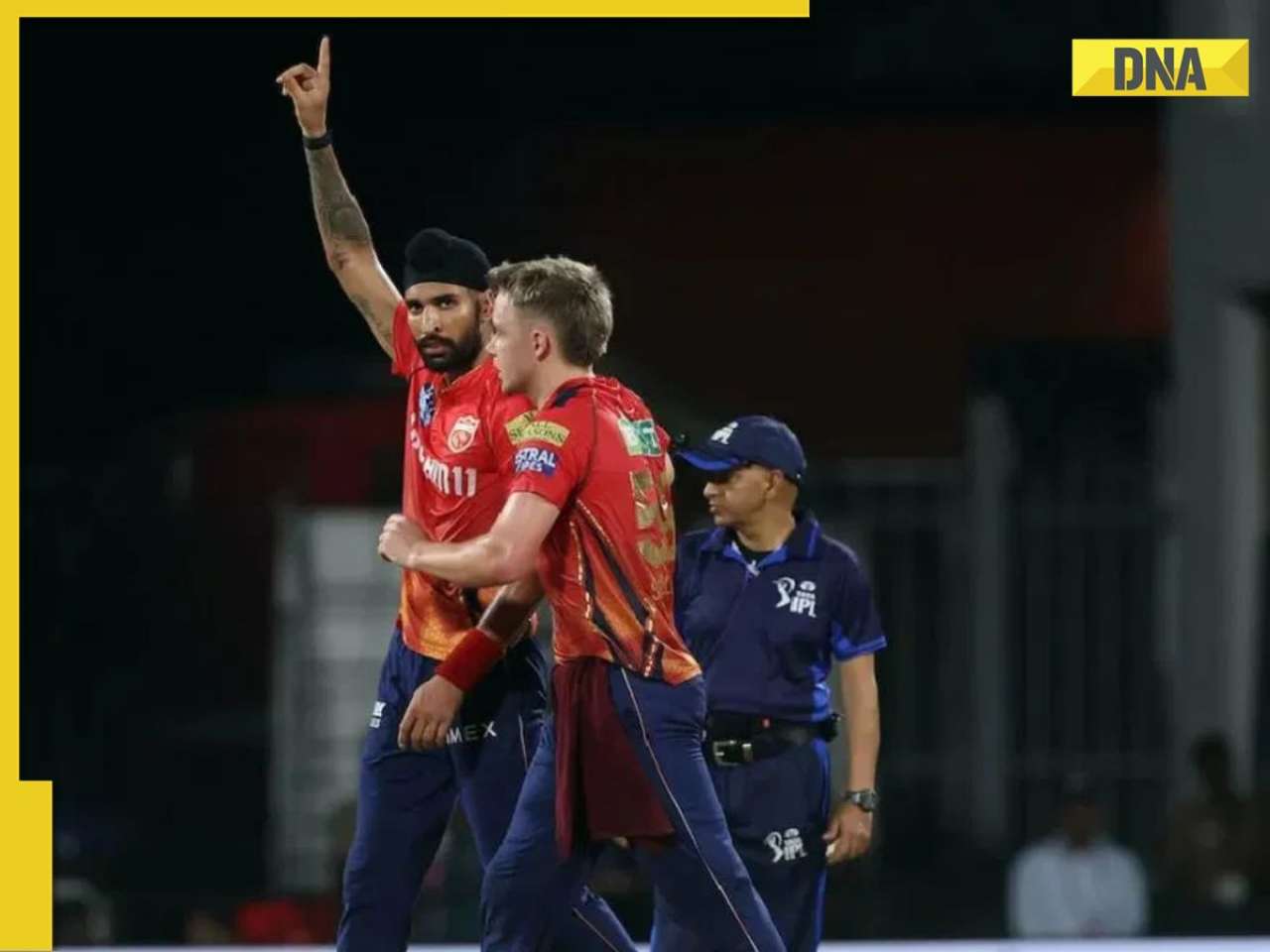
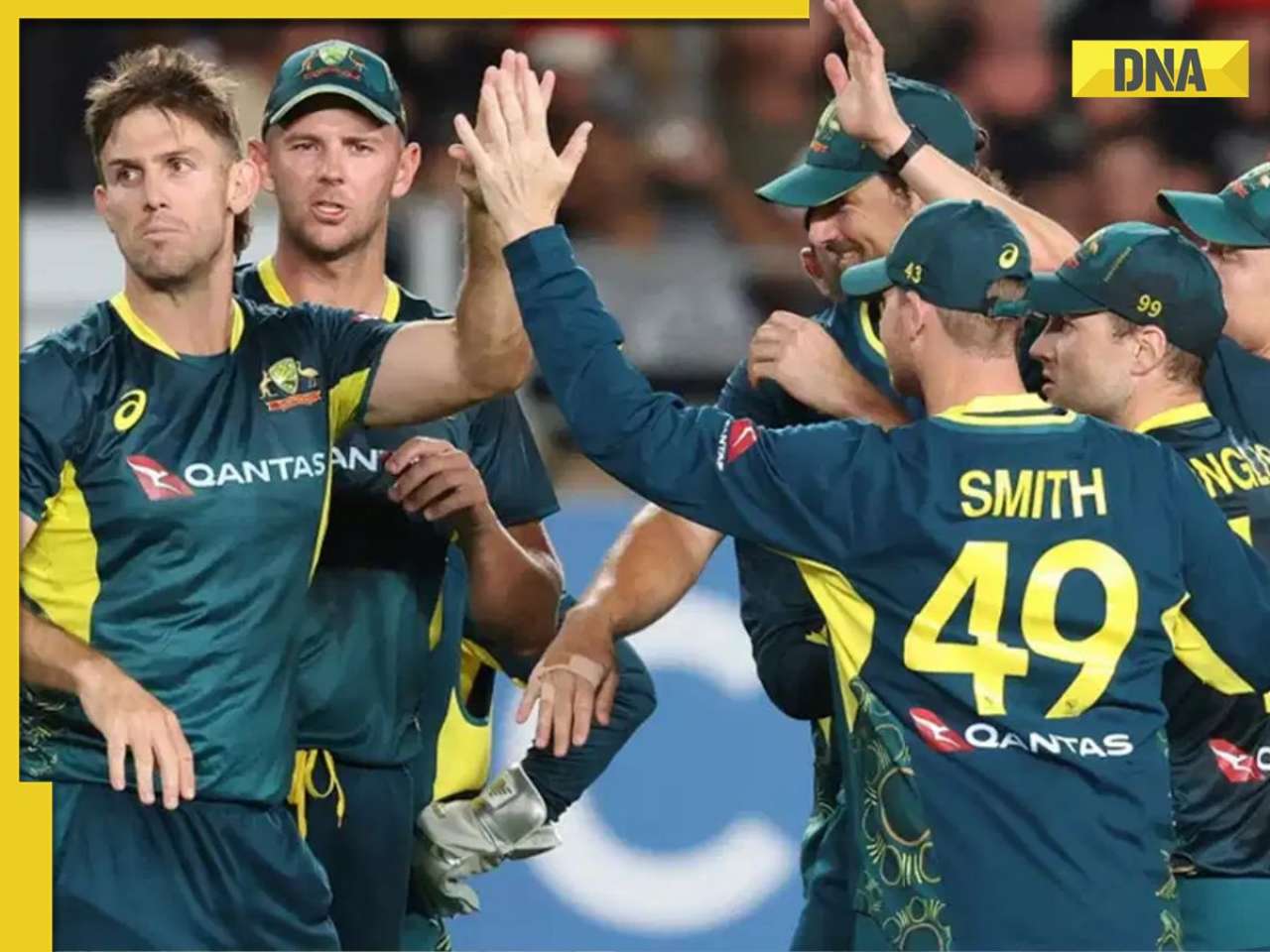
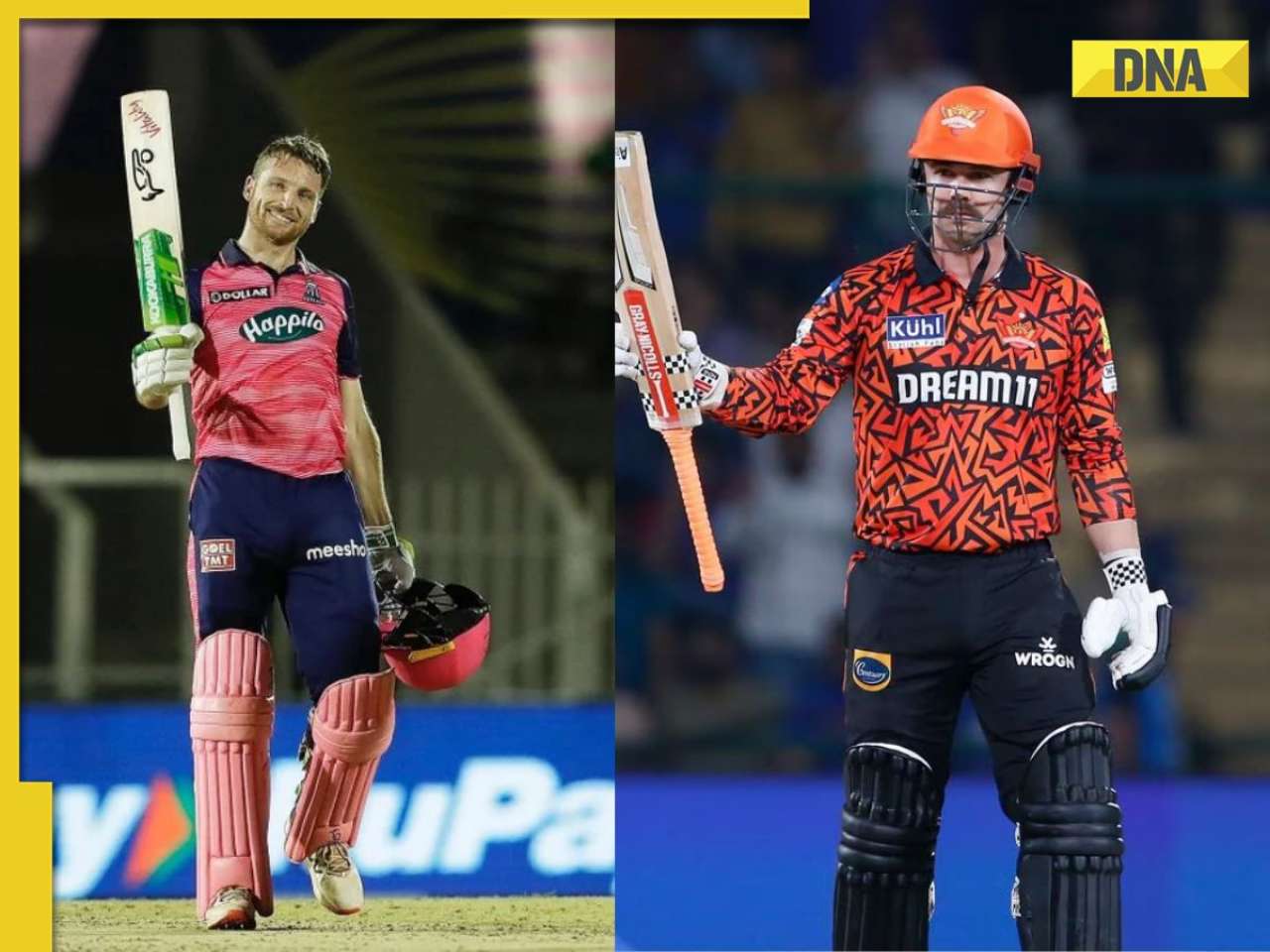
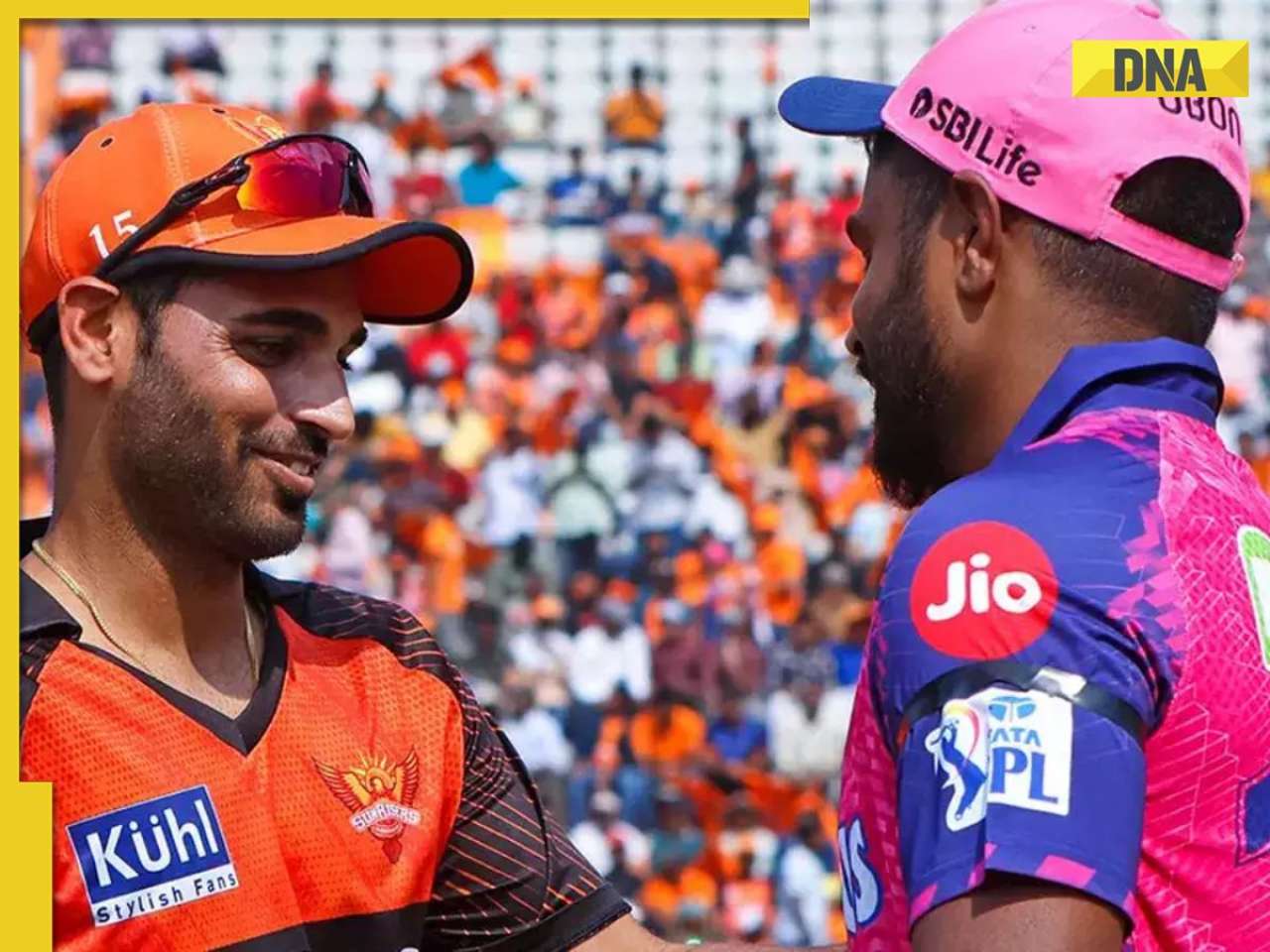



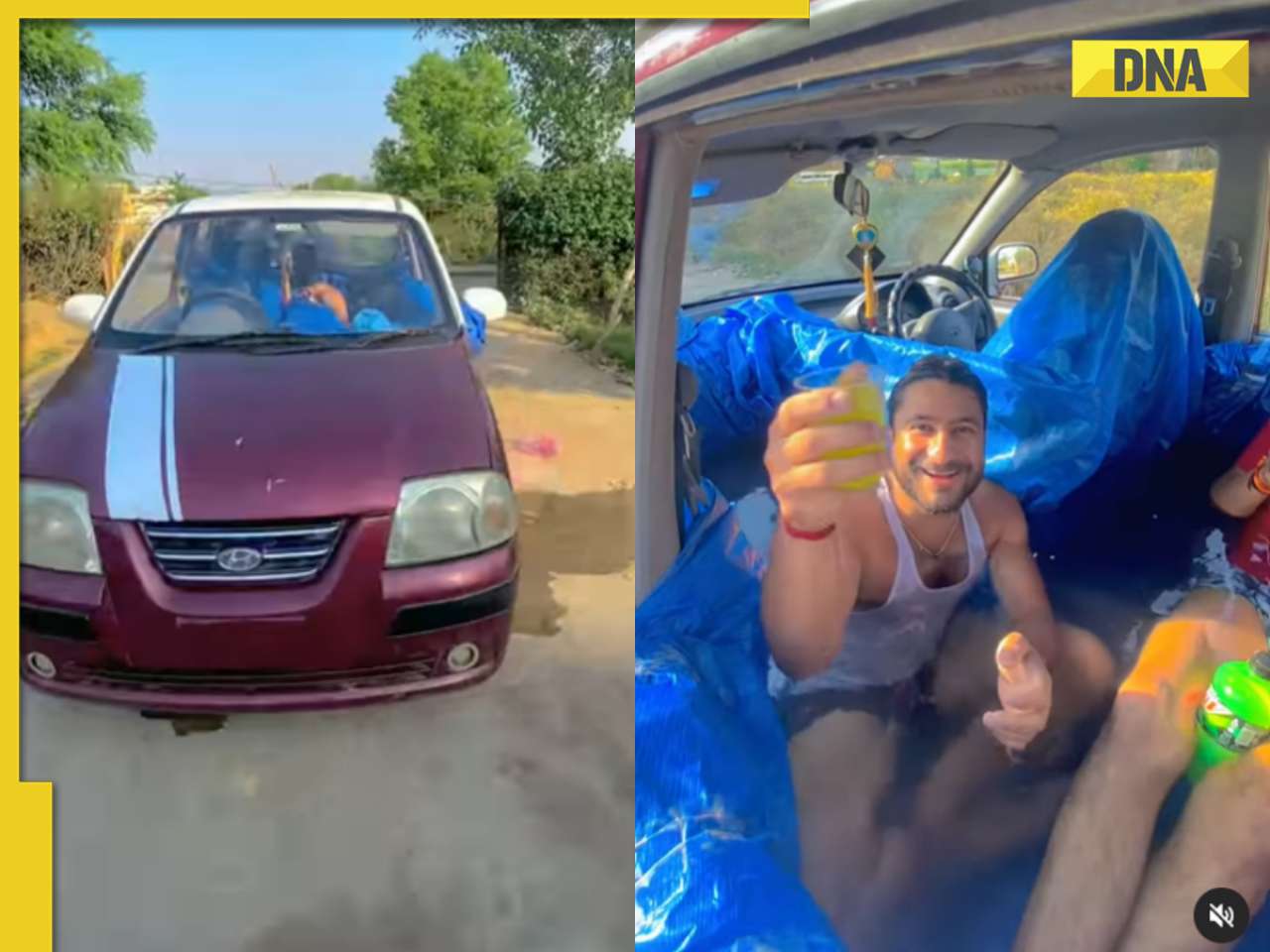
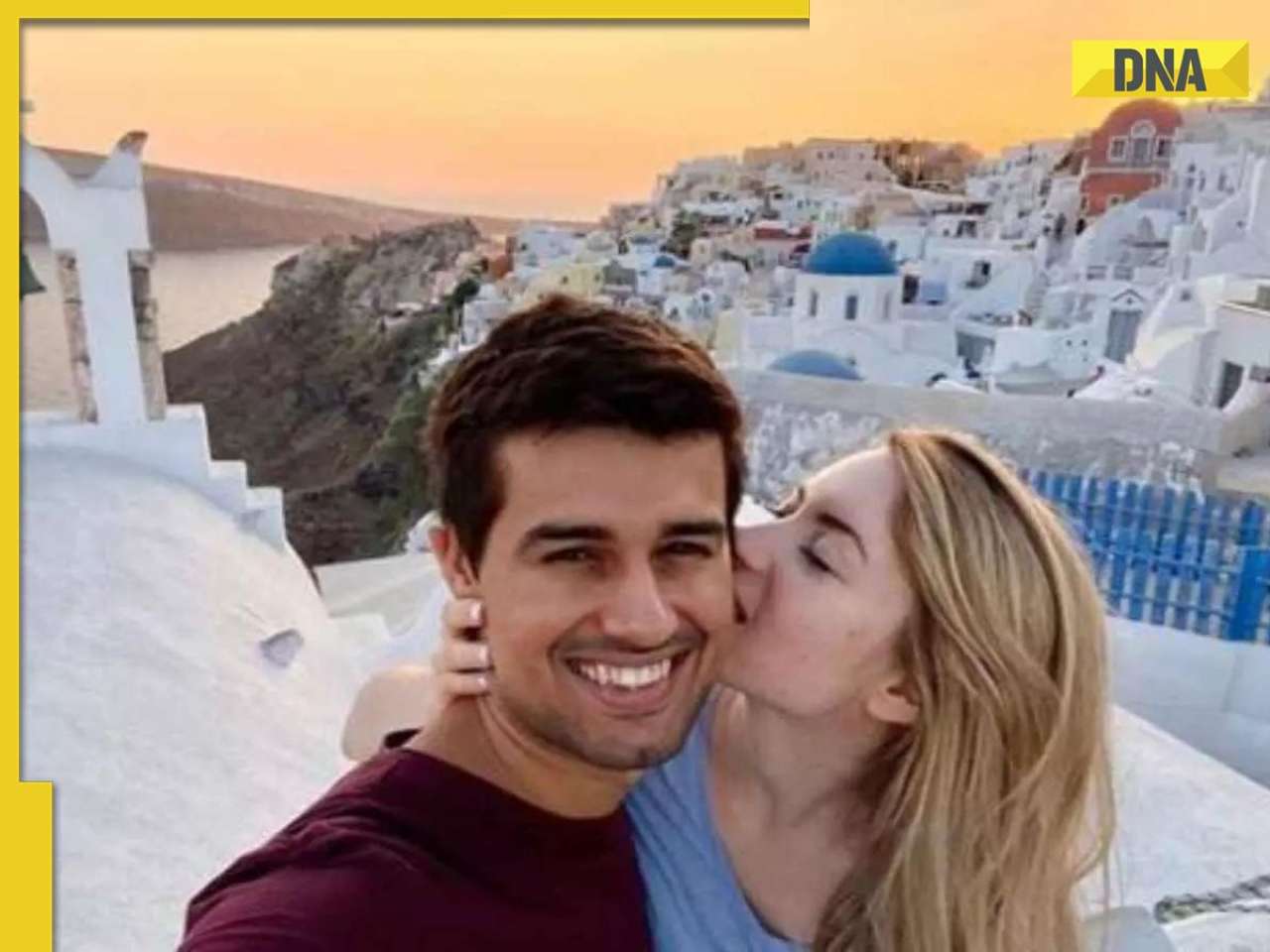












)
)
)
)
)
)